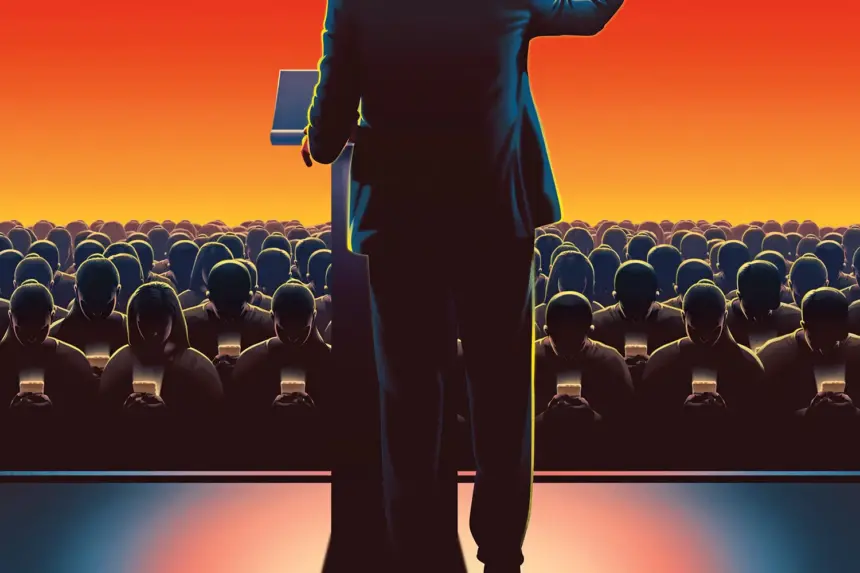Understanding public opinion on political figures is crucial for leaders to effectively navigate through their roles. Public opinion refers to the collective views and preferences of the general public towards political figures. It shapes the perception and influence of leaders in society. Being aware of public opinion allows political figures to gauge the level of support or opposition they have and to understand the needs and concerns of the people they serve. By understanding public opinion, leaders can better tailor their policies and communication strategies to resonate with the public and gain their trust and support. The siyasatdan.pk company provides services in Pakistan to help political figures understand and analyze public opinions towards them, enabling them to make informed decisions and enhance their leadership effectiveness.
The impact of public opinion on political figures
Public opinion plays a significant role in shaping the fate of political figures. Favorable public opinion can enhance their popularity and influence, while negative opinions can lead to a loss of support and trust. It can determine the success or failure of policies and ultimately impact their ability to lead effectively. Political figures must continually gauge and respond to public opinion to maintain their standing and adapt their approach accordingly.
The role of leadership in shaping public perception
Leadership plays a crucial role in shaping public perception of political figures. The way leaders communicate, make decisions, and handle crises can greatly influence how the public sees them. Strong and effective leadership can inspire trust and confidence, while weak or ineffective leadership can lead to skepticism and doubt. Leaders who are able to effectively communicate their vision and values can gain the support and respect of the public. Additionally, leaders who demonstrate integrity, transparency, and empathy can create a positive perception among the public. On the other hand, leaders who are perceived as dishonest, corrupt, or disconnected from the concerns of the people can face public backlash and loss of trust. Therefore, the role of leadership in shaping public perception is crucial in determining the success or failure of political figures.
Factors Influencing Public Opinion
Factors influencing public opinion towards political figures can vary significantly. Media coverage, political ideologies, personal experiences, economic factors, and social trends all play a role in shaping public perceptions.
Media influence on public opinion towards political figures
Media plays a significant role in shaping public opinion towards political figures. Through news coverage, social media, and other platforms, the media has the power to shape narratives, highlight certain aspects of a politician’s persona, and influence public perceptions. Media coverage can sway public opinion positively or negatively, depending on the framing and portrayal of political figures. It can also amplify certain narratives or controversies, which can impact the public’s perception of a politician. The media’s influence on public opinion towards political figures cannot be underestimated, as it has the potential to sway voters’ decisions and impact the overall popularity and credibility of a politician.
Economic factors affecting public perception of leadership
Economic factors such as unemployment rates, inflation, and income inequality can significantly impact public perception of political leadership. High unemployment or rising prices can lead to dissatisfaction and lower approval ratings for leaders, while economic growth and job creation can boost public support. These factors shape how the public perceives a leader’s ability to manage the economy and prioritize the welfare of the people.
Historical Perspectives on Political Leadership
Throughout history, political leaders have played a crucial role in shaping nations and societies. From powerful empires to democratic governments, the leadership styles of past political figures have varied greatly. Studying these historical perspectives can provide valuable insights into the qualities and actions that define effective leadership. By examining the successes and failures of leaders such as Mahatma Gandhi, Nelson Mandela, and Abraham Lincoln, we can learn important lessons about the importance of integrity, empathy, and strategic decision-making in political leadership. These historical perspectives serve as a guide for current and future leaders seeking to navigate the complexities of public opinion and effectively steer their nations towards progress and prosperity.
Strategies for Effective Communication
Effective communication is crucial for political figures to steer public opinion. They must utilize clear and concise messaging, engage in active listening, and employ various communication channels to reach a wide audience. Building strong relationships with the media and maintaining transparency in their actions can also help establish credibility and trust among the public. By employing these strategies, political figures can effectively convey their ideas, inspire confidence, and shape public opinion in their favor.
Utilizing effective communication to steer public opinion
Political figures understand the power of effective communication in shaping public opinion. They utilize clear and concise messaging, engage in active listening, and employ various communication channels to reach a wide audience. Building strong relationships with the media and maintaining transparency in their actions help establish credibility and trust among the public. By employing these strategies, political figures can effectively convey their ideas, inspire confidence, and shape public opinion in their favor.
Read more: Chilled Water System vs. Air Conditioning
Conclusion
In conclusion, public opinion plays a vital role in the leadership of political figures. By understanding and addressing public perceptions, leaders can navigate challenges, build trust, and effectively communicate their message. This is particularly important in a country like Pakistan, where siyasatdan.pk offers services to gauge public perspectives. The lessons learned from historical political leadership remind us of the importance of transparency, accountability, and responsiveness to public concerns. As the dynamics of public opinion continue to evolve, political figures must adapt their strategies to effectively steer public perception and build a stronger democracy.




